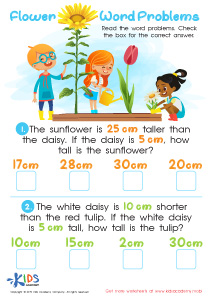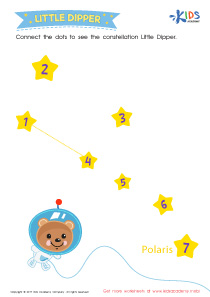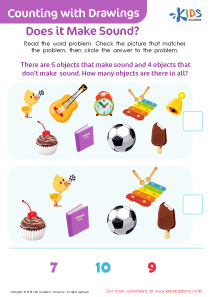Easy Foundations and Applications in Measuring, Time and Data Quizzes for Ages 6-7
6 results
6 filtered results
Clear all filters6 filtered results
-
From - To
Unlock the world of numbers and measurements with our "Easy Foundations and Applications in Measuring, Time, and Data" interactive quizzes, perfectly curated for children aged 6-7. Designed to engage and educate, these quizzes offer a delightful way to check knowledge and provide insightful feedback on crucial concepts. Children will dive into the essentials of measuring lengths, understanding time, and interpreting data, all through an accessible and fun interface. With each question tailored to their learning level, our quizzes ensure a solid foundation in these key areas, empowering young minds to grasp and apply their knowledge with confidence and ease.
In today's fast-paced world, where technology and education go hand in hand, finding the right tools to aid children's learning has become increasingly important. Easy Foundations and Applications in Measuring, Time and Data for Ages 6-7 stand out as a pivotal resource in shaping young minds. This innovative approach to learning not only simplifies complex concepts but also makes education an enjoyable journey for children in their formative years.
The transition from abstract to concrete understanding in subjects such as mathematics is crucial at the ages of 6 to 7. At this stage, children are just beginning to grasp the fundamentals of measuring, the concept of time, and the basics of data interpretation. The Easy Foundations and Applications in Measuring, Time and Data for Ages 6-7 program is meticulously designed to cater to this specific age group, ensuring that the content is both engaging and appropriately challenging.
One of the key benefits of this program is its interactive quizzes. These are not mere assessments; they are stepping stones towards a deeper understanding of the subject matter. Through these quizzes, children are able to apply what they've learned in a fun and engaging way. The immediate feedback provided helps them recognize areas where they excel and aspects they need to focus on, fostering a positive learning environment that encourages growth and curiosity.
The quizzes are crafted to cover a wide range of topics within the realms of measuring, time, and data. From understanding the basics of length, weight, and volume in measuring to comprehending hours, minutes, and seconds in time, and interpreting simple graphs and charts in data, the content is rich and varied. This diversity ensures that every child, regardless of their interest or proficiency level, finds something that resonates with them, making learning a personalized experience.
Moreover, the Easy Foundations and Applications in Measuring, Time and Data for Ages 6-7 program is designed with the cognitive and developmental stages of 6 to 7-year-olds in mind. The quizzes are not just about answering questions; they involve interactive tasks such as dragging and dropping, matching, and selecting from multiple choices. These activities help in developing fine motor skills, improving hand-eye coordination, and enhancing decision-making abilities.
Integration of visual aids and stories within the quizzes makes complex concepts more understandable and relatable. Children are more likely to remember how to tell time when they associate it with their daily activities or understand measurement when it's linked to objects they encounter in their everyday life. This contextual learning ensures that the knowledge they gain is not only theoretical but also practical and applicable in real-world scenarios.
In conclusion, the Easy Foundations and Applications in Measuring, Time and Data for Ages 6-7 program offers a comprehensive, engaging, and interactive way for children to grasp fundamental concepts in mathematics. By making learning fun and accessible, it lays a strong foundation for future academic pursuits and instills a love for learning that will accompany them throughout their educational journey.











.jpg)
